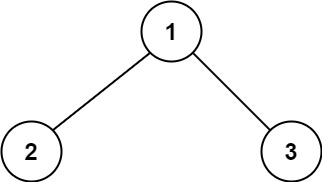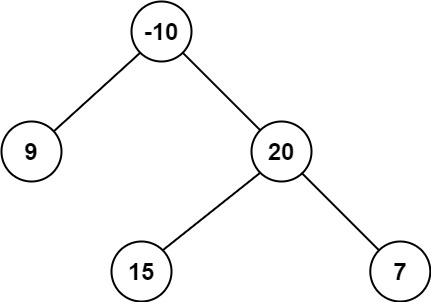Leetcode#124. Binary Tree Maximum Path Sum
Problem
A path in a binary tree is a sequence of nodes where each pair of adjacent nodes in the sequence has an edge connecting them. A node can only appear in the sequence at most once. Note that the path does not need to pass through the root.
The path sum of a path is the sum of the node’s values in the path.
Given the root of a binary tree, return the maximum path sum of any non-empty path.
Example 1:
!https://assets.leetcode.com/uploads/2020/10/13/exx1.jpg

1 | Input: root = [1,2,3] |
Example 2:
!https://assets.leetcode.com/uploads/2020/10/13/exx2.jpg

1 | Input: root = [-10,9,20,null,null,15,7] |
Constraints:
- The number of nodes in the tree is in the range
[1, 3 * 104]. 1000 <= Node.val <= 1000
Solve
1 | # Definition for a binary tree node. |
本部落格所有文章除特別聲明外,均採用 CC BY-NC-SA 4.0 許可協議。轉載請註明來自 Imisky!
評論
